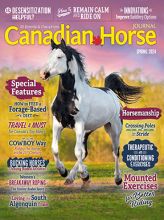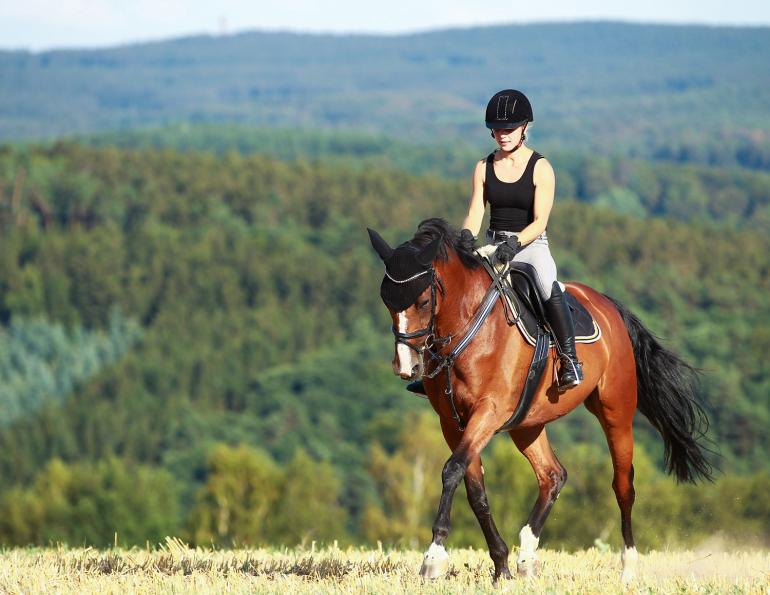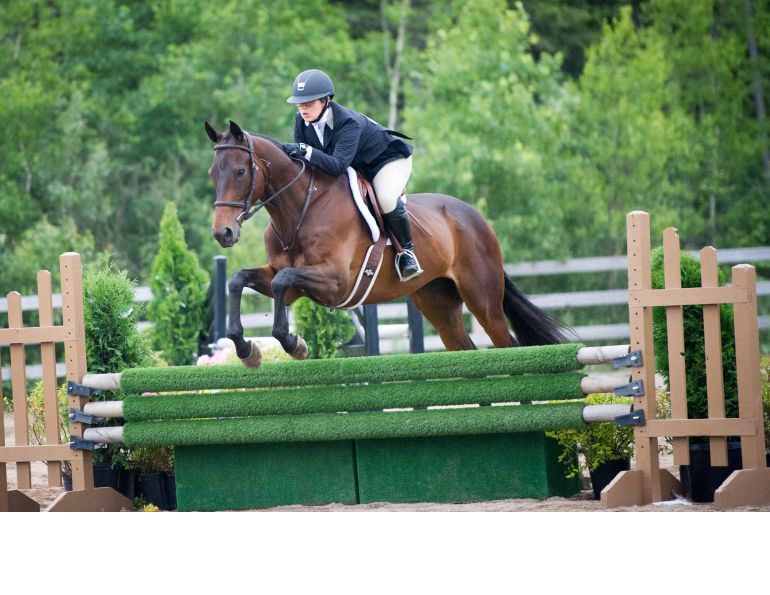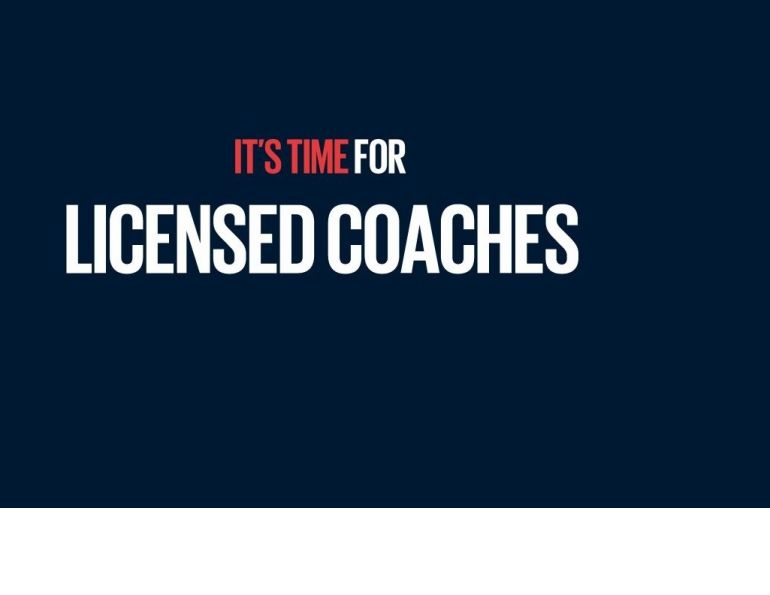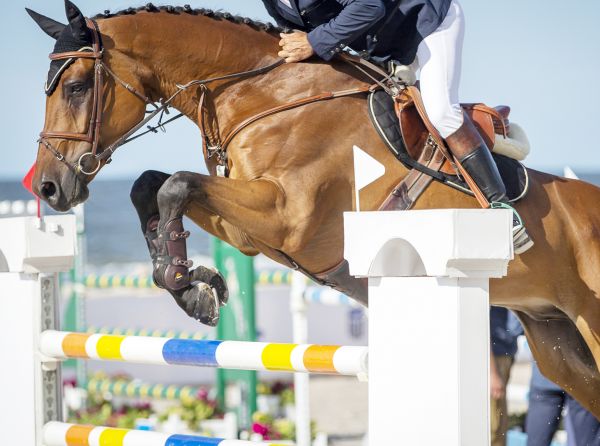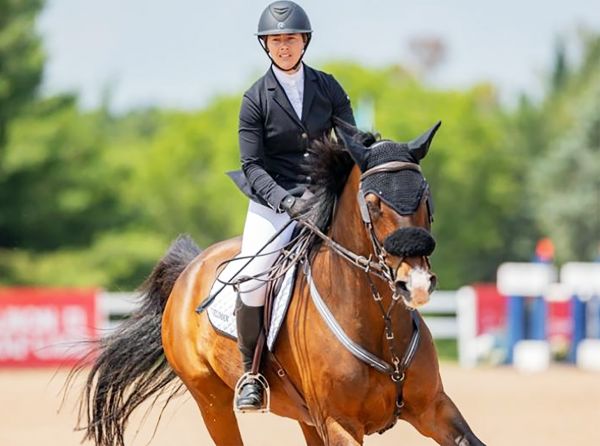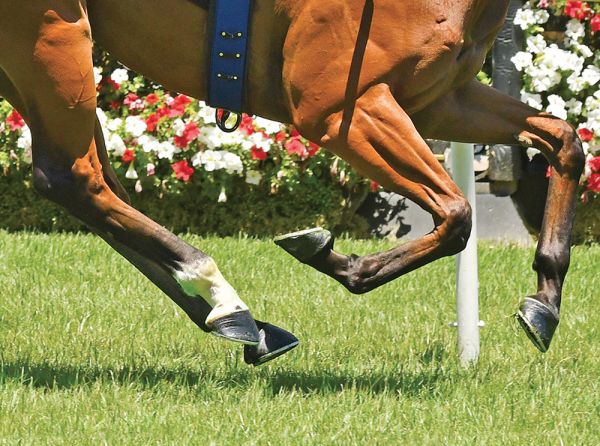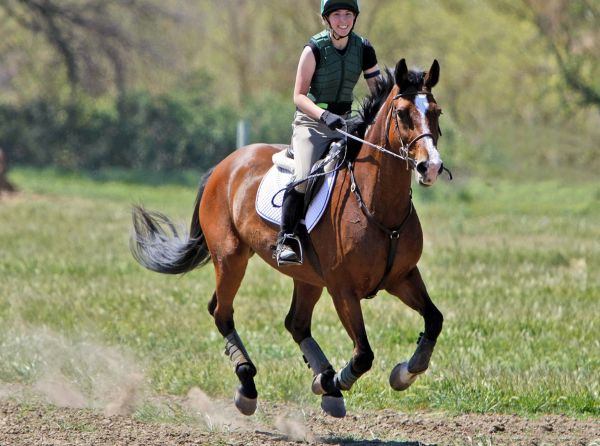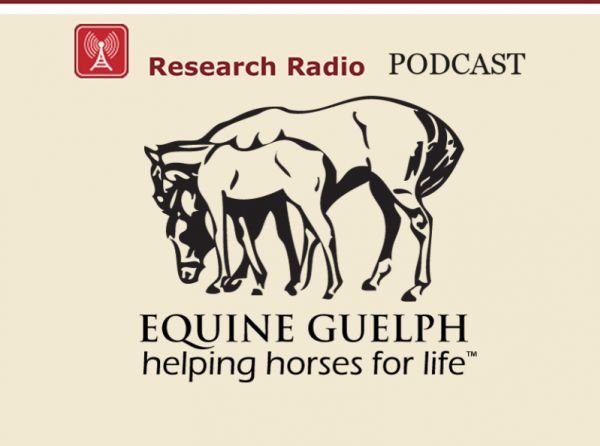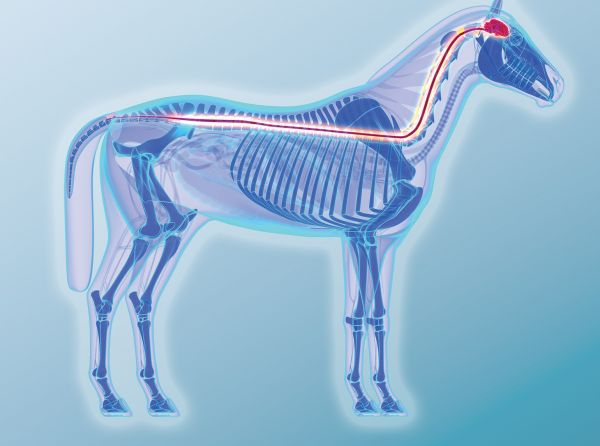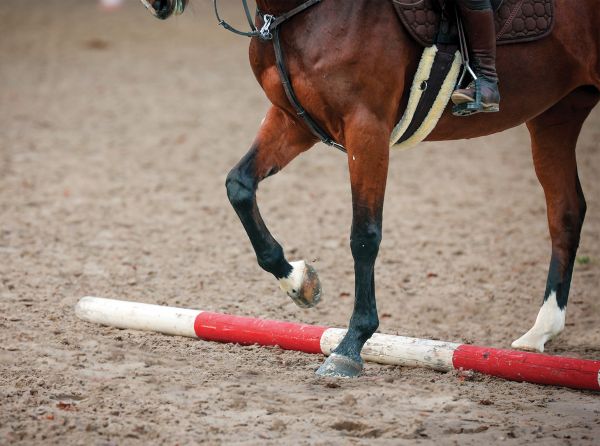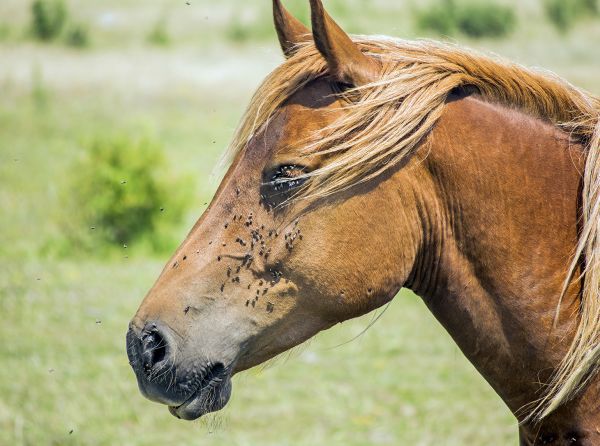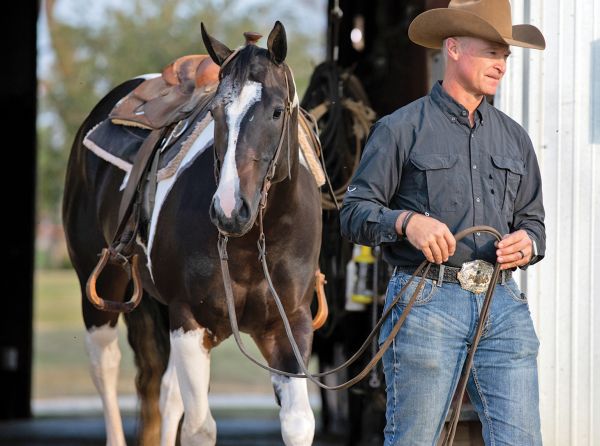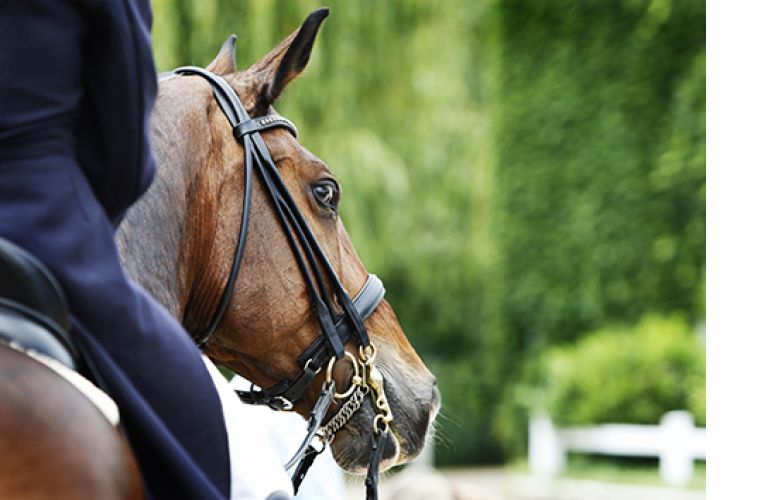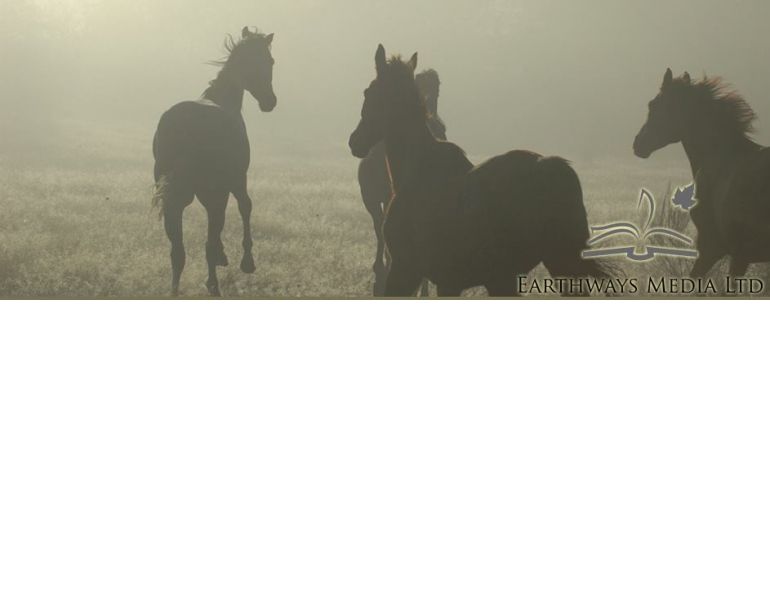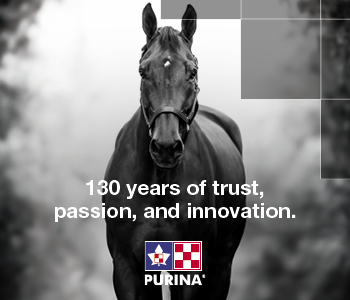By Karen L. Weslowski, LL.B., Litigation Lawyer
For riding coaches and horse trainers, horse-related accidents are often not a matter of “if”, but “when.” Given the dangers associated with equine activities, accidents such as falls are inevitable. Although coaches and trainers should ultimately be focused on offering the very best services possible, they must also be aware of the importance of risk-management and protecting themselves from legal risks.
This article will explore how coaches and trainers may take steps to manage their legal risk. Since such legal issues can be complicated, individuals with specific concerns or questions may require the assistance of a lawyer.
Coaching Concerns
Before embarking upon, or continuing in, a coaching career, there are a number of things to consider from a legal standpoint. These may include: liability risks generally, insurance requirements, liability relating to facilities used for coaching, and liability relating to coaching at shows.
Liability Risks
Coaches owe a “duty of care” to their students and may be liable in negligence for any act or omission which is “reasonably foreseeable” as likely to cause injury to the student. A finding of liability can result in an order to pay monetary damages for any injuries caused to the student. Damages can be significant depending upon the nature of the injuries. As such, coaches should ensure that they do all they can to minimize liability at the outset. This may include: interviewing students carefully about their experience and abilities, matching students to the appropriate horses, requiring all students to wear helmets and other safety gear, ensuring safe teaching areas, and keeping riding, stable, and pasture areas free of hazards that could cause an accident.
In order to reduce or manage their liability risk, coaches may wish to consider having students execute a “waiver,” also known as a “Release and Waiver of Liability” or “Acknowledgement of Risk and Release of Liability.” A waiver is a written contract between two or more parties in which the participant agrees not to hold the organizer responsible or liable for any injuries that the participant might receive as a result of participating in the organizer’s programs. In the case of a coach and student, the waiver should stipulate that the student agrees not to hold the coach liable for injuries he or she might receive as a result of participation in riding lessons, including injuries that might have been caused by the coach’s negligence.
The waiver must be very carefully drafted and meet certain legal requirements. For more information on how to ensure a waiver is legally enforceable, see the article “Negotiating Risk: The Use and Enforceability of Waivers."
Although certification is generally not a prerequisite to a coaching career, it is highly recommended as it may lessen liability risks and result in additional insurance coverage and/or substantially lower insurance premiums.
Coaches should ensure, if not required as part of their certification, that they hold an up-to-date first aid certificate. If a student has an accident which requires immediate, basic medical attention and the coach is not able to provide such attention, it may be a breach of the coach’s “duty of care” to the student.
Coaches may face liability risks in relation to the types of horses used by their students. Coaches often supply school horses. By supplying a school horse to a student, the coach is essentially warranting to the student that the school horse is safe, sound, and appropriate to learn on. If this is not the case, and the horse is not suitable, the coach may be liable for any accidents that occur. Coaches should also take care that a student’s own horse is appropriate for the student’s experience, skill, and ability. A coach may have a duty to warn a student if their horse is inappropriate, particularly if the student lacks the knowledge to make that determination. A coach could be legally liable for failing to do so.
Insurance
Why is Insurance Required at all?
Horse-related accidents are often just that, accidents, in that no one is at fault. Sometimes, however, horse-related accidents are due to carelessness, a lapse in judgment, or a momentary lack of attention. In either case, insurance can provide coverage to coaches for legal claims made against them as a result.
It is extremely important that coaches obtain the appropriate insurance. Many coaches may take the view that if they use waivers, insurance is not necessary as the student has agreed to release or waive the coach from any and all liability. However, many waivers are not legally enforceable due to poor drafting or the accident giving rise to the claim could fall outside the scope of the waiver. As well, the fact that an individual has signed a waiver is not a bar to the commencement of a lawsuit. Many individuals who have signed waivers still commence claims, arguing that the waiver they signed is not legally enforceable. In this situation, the coach will be required to pay legal costs for a lawyer to defend the claim against them. Insurance will generally provide coverage to the coach for such “defence costs,” which can be significant. This is one benefit of insurance.
The other benefit to insurance is that if a coach is sued successfully, insurance will generally provide indemnity for that claim. As such, the insurance company will pay the monetary damages awarded by the Court to the injured person. Given the nature of horse-related accidents, injuries resulting from such accidents can be severe. A person with severe injuries as a result of a horse-related accident could be awarded hundreds of thousands of dollars in compensation. Obviously, the average coach cannot afford to pay that kind of compensation.
How much Insurance Coverage is Enough?
Most coaches will be members of their respective provincial equestrian federations, such as the Horse Council of British Columbia or the Ontario Equestrian Federation. Most of these federations offer an equestrian insurance package to their members as part of the membership fee. However, coaches should not assume that the insurance provided as part of their membership will automatically provide insurance coverage for coaching activities. Individuals who receive money or some other form of valuable compensation for coaching services are “equine professionals” and generally require commercial liability (“CGL”) insurance.

Coaches and trainers should discuss their particular insurance needs with an insurance broker. Coaches owe a duty of care to their students and may be liable in cases of negligence. Photo: Pam MacKenzie
Many coaches provide riding lessons at their own property. Coaches should not assume that their home or farm insurance policy will provide coverage for equine-related accidents that occur on their property. Many home or farm insurance policies exclude coverage for accidents arising from commercial, equine-related accidents.
Coaches should inquire with their insurance broker as to their particular insurance coverage needs. As noted, coaches usually require CGL insurance in addition to the basic insurance package provided by their provincial equestrian federation. The type of insurance required by each coach may depend upon factors such as the types of riding the coach is instructing, the level of student the coach is instructing, the location of the coach’s lessons, and whether the coach employs any assistant or student coaches who also require coverage. The monetary amount, or “limit” of insurance required may also depend upon these factors as they go to the level of risk associated with the coach’s activities. Ideally, coaches should purchase as much insurance as they are able to afford. Although one or two million dollars of insurance coverage sounds like a lot, in cases of serious bodily injury where a person is unable to work for the rest of their life, it can actually be insufficient to cover defence costs and monetary damages intended to compensate the person for their injuries.
When consulting with an insurance broker, it is important for the coach to be completely honest about what activities the coach is paid for, where those activities occur, who owns the horses used for lessons or other activities, and whether the coach has any student or assistant coaches working for him or her. Insurance companies require this information in order to assess the risks posed by the coach and determine the premiums to charge. A failure to disclose all material information to the insurance company could result in the insurance company cancelling the policy at a later time for misrepresentation. This can have severe consequences for the coach. For instance, if a coach is sued for a riding lesson accident and, in the course of investigating the student’s claim, the insurance company finds out that when applying for insurance the coach misrepresented the facts (or lied) with respect to the horses to be used by students in lessons. Assume that the student was supposed to be using the coach’s dependable school horse, and that this was a condition of the policy. However, the coach permitted the student to ride the coach’s green, four-year old horse in a lesson. In this scenario, the insurance company could cancel the policy for the coach’s misrepresentation. The coach would then be required to pay all legal defence costs associated with defending the claim, as well as any court-ordered monetary damages for the student’s injuries.
Facilities Used for Coaching
There are a number of legal issues that could arise with respect to the facilities used for coaching, whether the coach leases or owns those facilities, or teaches at a student’s facility.
“Occupiers liability” legislation places a special obligation on owners and occupiers of property to make the property safe for people invited onto the property. This legislation imposes a duty of care upon an owner or occupier of premises to ensure that all people entering the premises will be reasonably safe in using the premises with respect to: (1) the condition of the premises; (2) the activities on the premises; and (3) the conduct of third parties on the premises.
Coaches who own their own facilities will obviously be owners under that legislation, while coaches who lease facilities may be considered an “occupier” under occupiers liability legislation. People who lease property generally have less control over the condition of that property than owners of property. For coaches who lease facilities, it is particularly important for them to ensure that the facilities are safe in every respect because they may be liable for accidents occurring as a result of the condition of the property. As such, coaches who lease facilities may need to work with the owner to address any safety hazards on the property, such as ring gates that do not close properly, low-hanging tree branches or deteriorating jump equipment.
Occupiers liability legislation also extends to activities on the premises and the conduct of third parties on the premises. This can result in potential liability risks for the coach. For instance, if the owner allows third parties to dirt-bike on their property adjacent to where a coach leases a riding ring on the same property to give lessons, the coach may be legally liable for a fall that occurs when a horse spooks at the sound of the dirt-bikes.
Coaches who lease facilities may also need to purchase extra insurance, in addition to their CGL insurance. CGL insurance will generally cover a coach for their coaching activities only, not for any risks associated with a leased facility. Coaches who use their own facilities will need to ensure that their farm or home policy does not exclude liability for commercial, equine-related activities. If it does, they will need to purchase additional coverage. Coaches who use their students’ facilities usually do not require any insurance other than their CGL insurance.
Coaching at Shows
Prior to coaching at shows, coaches should ensure that their coaching or CGL insurance is in place. The CGL coverage will generally “follow” the coach to wherever they are teaching, including out-of-province and out-of-country, although coaches should confirm this with their insurance broker when taking out insurance.
Coaches will not be liable under occupiers liability legislation for the condition of the show premises, as coaches neither own nor occupy those premises. However, coaches should still be aware of the condition of the premises and any equipment used. If there are obvious hazards, the coach will owe their student a “duty of care” to avoid or minimize those hazards. For instance, if the warm-up ring is particularly small and crowded (as they often are), the coach should likely not warm up a novice rider in that ring, as the rider may lack the confidence and skills to negotiate his or her way around the ring without incident.
Additional insurance issues arise if coaches are transporting students’ horses to shows, particularly if they are doing so for a fee. Coaching insurance may not provide coverage for accidents occurring in the course of this activity or for injury to the transported horses. Coaches should inquire with their insurance broker as to whether they have coverage in this regard.
Training Concerns
Individuals who train horses for a living have some of the same liability concerns as coaches, although there are also other issues that trainers should be aware of. Trainers should be aware of obligations under occupiers liability legislation, insurance requirements, and legal obligations for the care of horses in their custody.
Occupiers Liability Legislation
As discussed above, “occupiers liability” legislation places a special obligation on owners and occupiers of property to make the property safe for people invited onto the property. Trainers who board horses on their own property or lease property to board horses which they are training will need to ensure that the property used for training purposes is safe in regard to the condition of the property and the activities occurring on the property. Trainers should ensure that there is nothing on the property that will pose a hazard to horse owners when they come onto the trainer’s property. If the horse accepted for training is particularly dangerous or unpredictable, the trainer must take care to ensure that the horse does not pose a hazard or cause damage to anyone else coming onto the trainer’s property. If that horse causes injury or damage, the trainer will be legally liable as the owner or occupier of the premises.

The training contract may require the owner to place insurance on their horse before accepting it for training. The trainer will have legal obligations to the owner of a horse he has taken custody of under the law of “bailment.” Photo: Pam MacKenzie
Insurance
Trainers who board horses on their own property to provide training will need to ensure that their farm or home insurance covers their training activities. Trainers should consult with an insurance broker in this regard. The trainer’s own insurance may not provide coverage for the horse while in the custody of the trainer.
As such, the trainer should consult with the owner as to whether the owner has placed insurance on the horse. A prudent trainer may wish to make insurance coverage on the horse, placed by the owner, a pre-condition to accepting the horse for training.
These types of issues can be included in the training contract signed between the owner and trainer.
Legal Obligations for Custody of Horses
Trainers who take custody of horses to provide training services have legal obligations to the owner under the law of “bailment”. A bailment may be defined as the delivery of a chattel (the horse) by the owner (the bailor) to another person (the bailee) on trust that the chattel will be returned to the owner at some later time in the same condition it was in when originally received by the bailee. In this situation, the trainer is not the insurer of the horse. The trainer will only be liable if the trainer is negligent and causes injury to the horse, or allows the horse to become injured, while in his or her custody. As such, the trainer should ensure that their premises are safe for horses in training. The trainer may be liable to the owner for monetary damages under the law of bailment. If the horse dies, or is rendered unusable, the monetary damages awarded will generally reflect the value of the horse. If the horse is merely injured, the monetary damages awarded will generally reflect the veterinarian bills and any other economic losses suffered by the owner as a result (i.e. lost horse show winnings). If the trainer does not have insurance, they will have to pay these damages themselves.
Summary
A career as a coach and/or trainer can be a rewarding one. To ensure a long and satisfying career, coaches and trainers would be well-advised to take steps to manage their legal risks by becoming aware of liability concerns, taking steps to minimize the chance of liability, and ensuring adequate insurance. When in doubt, coaches and trainers may wish to consult a professional, such as a lawyer or insurance broker, to obtain advice in this regard.
This article is provided as an information service only and is not meant as legal advice. Readers are cautioned not to act on the information provided without seeking specific legal advice with respect to their unique circumstances and the applicable law in their province of residence.
Main photo: Robin Duncan Photography - CGL insurance will usually follow coaches to shows, but coaches still have a duty of care to avoid or minimize any potential hazards at the show site.


